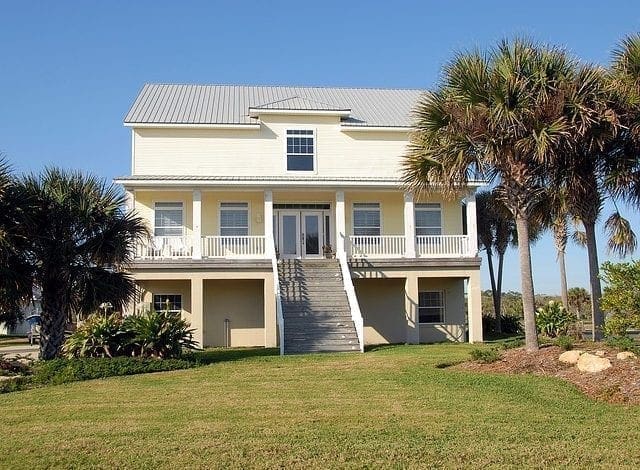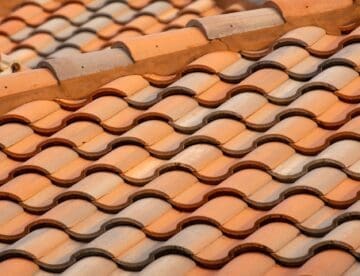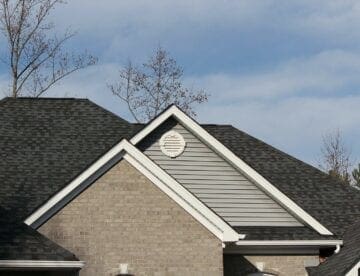In the US, the average amount of rainfall in any state is about 38 inches of rainfall a year. But in Florida, that average is 51 inches. Florida weather can do a number on many structural components, including the roof. The amount of humidity, heat, sun, and rainy weather a place sees will have an impact on the roofing system’s lifespan. The type of shingles installed and the way a roof is designed will need to be factored in when choosing the best roof material for Florida weather.
Weather and Climate in the Tampa Bay, Florida Area
Here at Code Engineered Systems, we’ve been installing and maintaining Tampa-area roofs for over 30 years. So, we know a thing or two about how much the weather in this area impacts commercial and residential roofing systems. The type of roof needed in Anchorage, Alaska will differ from a Florida roof drastically. But what’s unique about the weather in Tampa, specifically, and how does that apply to roofs?
Well for one thing, the Tampa Bay region has a humid, tropical climate. Near the waterfront, Tampa has what’s considered a tropical monsoon climate, which is unlike almost any other area of the US. We’ve got two basic seasons here in Tampa—hot and wet, and mild and dry. Most of the rainfall we see will grace us between June and September.
The drastic changes from humid, hot, and rainy weather to dry and mild weather means your Florida home will need to possess a roofing material that can withstand these conditions. Your best bet is to go with clay tiles, metal, or even concrete and slate roofing materials for Florida weather. We’ll cover why these types of materials are best for Tampa properties below.
Clay Tile Roofs for Florida Weather
When a home or business property owner chooses a roofing material, aesthetics are often at the forefront of their mind. In Florida and other tropical, beach areas, clay tile tends to fit in with the aesthetics of the geography and homes. The good news is, clay tile is also very suitable for the drastic Florida weather.
Clay tiles can withstand high heat, sun, and humidity. They will also last a long time if maintained properly. The average clay tile roof has a lifespan between 50 – 70 years. What are the other pros of a clay tile roof?
- A building with a clay tile roof will appraise more highly than an equivalent building with an asphalt shingle roof.
- Clay tile roof homes tend to sell more quickly in Florida than homes outfitted with other roofing materials.
- A clay tile roof will last for decades if properly installed and serviced.
- Clay tile roofs are aesthetically pleasing.
- Clay tile roofs are suitable for Florida weather and absorb little heat, keeping the inside of the building cooler.
But a clay tile roof may not be the best choice for your special building and situation. Like anything, clay tile does come with a few downsides. Below are the cons of clay tile roofs:
- Clay tile is susceptible to damage from the acid in bird droppings. As such, the roof will often need pressured washed by a professional.
- It’s a very heavy material that may not be possible to have installed on a building.
- Even minor cracks in the tiles from storm damage and debris can cause problems with the underlayment.
- Plants love to take root on clay tiles. When leaves get stuck on a clay tile roof, dirt can accumulate and give way to plant growth.
Should you pick clay tile for your roof? It depends on many factors. A professional roofer can help you decide if clay tiles are a good option for your home or commercial building.
Metal Roofs for Florida Homes
Metal is a great option for your Florida roof. This material is suitable for both cold climates and hot ones too. Metal will adequately reflect sunlight and help keep the inside of the building cooler for longer. You might see your electricity bills decrease during summer when you have a metal roof installed. A metal roof will last about 50 years, and it’s also more resistant to fungus and moss growth than other roofing materials. Metal can be pricey though so it’s a good idea to look into financing options for roof installation.
Concrete Tiles
Concrete tiles are a newer roofing material offered on the market in Florida. These tiles can be designed to mimic the look of other materials, like cedar shake or classic slate tile. While they can look like these two materials, they don’t come with the same downsides—namely, susceptibility to rot and heavy weight.
Concrete can also be made to look like clay tile, although it’s much lighter. Many Florida buildings can’t withstand the weight of clay or slate. If you like the look of these materials, installing concrete tiles might be the way to achieve the look you want. Concrete tiles are also resistant to moss, rot, and pests. But they do have some downsides:
- Concrete is an expensive option.
- The material can change color.
- Concrete tiles can curl and break more easily than other roofing materials like metal.
Slate Roofs
Slate is one of the longest-lasting and durable roofing materials in existence. Different species of slate have been used for centuries in roof installation. Some countries, such as Wales and Australia, have rich traditions in slate roofing. In the US, many of the older parts of the country still boast many homes with their original slate tiles.
- Slate lasts a long time.
- Slate is a beautiful material for roofs.
- Slate resists rainy conditions, insects, and rot.
- Slate tiles can withstand extreme weather conditions often seen in the Tampa Bay area.
The problem with slate tiles though, is that it’s not the most popular material to work with. It’s pricey, and it can be difficult to source for materials. Also, since not many people in the US install slate roofs anymore, it can be challenging to find a contractor who is well-versed in installing this material. Slate is also one of the heaviest roofing materials. Your building may not even be able to safely withstand the weight of a slate roof.
What about using asphalt shingles on Florida roofs?
Asphalt shingle is the go-to roofing material for homes and buildings in the US. It’s one of the most affordable options, and it’s easy to find a roofing contractor who knows how to work with this material. When it comes to Florida weather, asphalt shingles may not be the good choice to install on your Tampa roof—at least in the long run. Why?
- Asphalt shingles are better suited for wet, cold climates. In heat, they’re susceptible to curling, fading, and softening.
- The average lifespan of an asphalt shingle roof is about 25 – 30 years. Of all the roofing materials, it has the shortest lifespan even when properly maintained.
- Because of the Florida heat and sun, asphalt shingle roofs will have even shorter lifespans than usual.
In addition, asphalt shingle is not the most environmentally-friendly option. The materials are petroleum-based. If recycled, the asphalt shingles emit dangerous fumes. But in a pinch, homeowners who are in need of a new roof, but can’t afford a more durable and green material, may opt for asphalt shingle. We offer affordable financing options for higher-quality materials if you’re looking to have a new roof installed.
A Final Word on Wood Roof Tiles for Florida Buildings
Wood shingles may look beautiful, but they are some of the worst materials for Florida roofs. For one thing, wood is highly subject to rot and insect damage. Cedar shakes and shingles do not hold up well to either high heat, humidity, or sunlight. And in Florida, those weather conditions are par for the course.
Florida is also considered the lightning capital of the world. A cedar shake roof is a fire hazard during storms where lightning is present. In the US, wood shingles are hardly ever used anymore because of fire safety reasons.
Florida Roofing Materials: The Bottom Line
For Florida residents, finding a roofing material that will withstand the intensity of Florida weather and that fits within your budget might seem daunting. Figuring out the right type of aesthetic you want for your roof is also a consideration. If you plan on staying in your home for many years, investing in a pricier, longer-lasting roofing material might be the best choice for your situation. Contact the Tampa roofing experts at Code Engineered Systems to discuss your roof installation needs.



